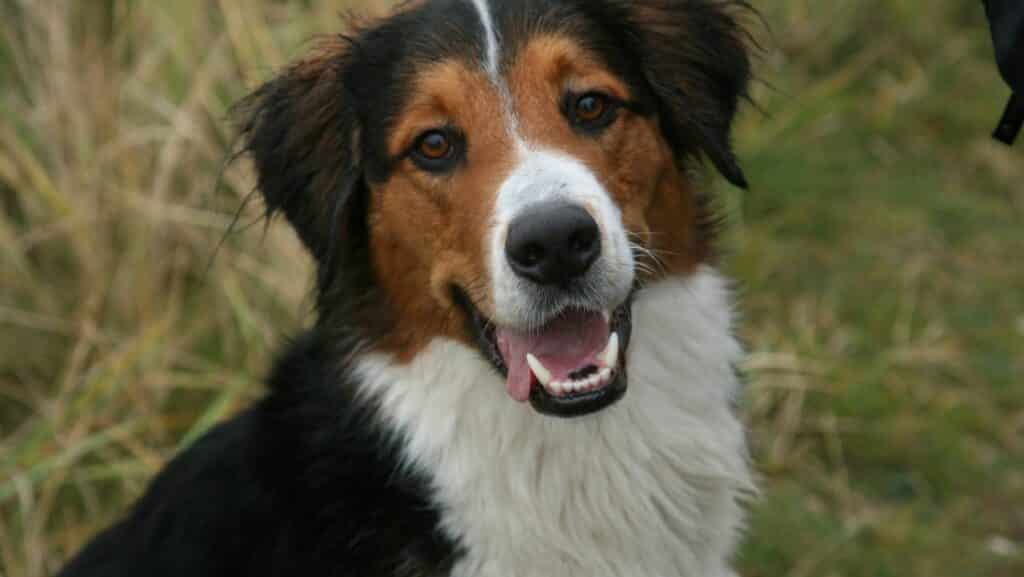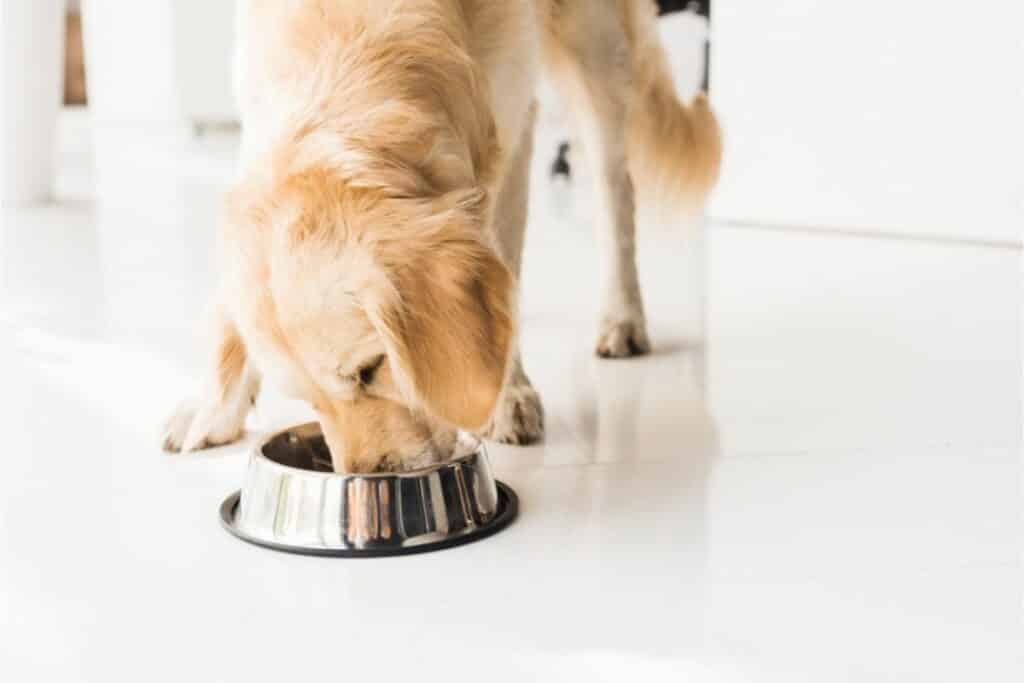As dog owners, every little thing can cause stress and anxiety, despite the fact that there might not be anything wrong.
However, you can never be too safe and will often hope that your dog’s strange behavior or symptoms will amount to nothing. One of the most common things that we may see with our dogs is that they hiccup from time to time.

This can sometimes be the signs of an underlying health problem and can be a cause for concern, however, this isn’t always the case.
Follow our guide to find out what the common forms of dog illnesses are and why your dog is hiccupping.
What Are Hiccups?
Hiccups are caused by involuntary contractions of the diaphragm muscle which pushes air into the lungs. This causes the stomach muscles to contract and push air back up through the esophagus causing it to spasm.
The result is a loud noise as air passes through the mouth and nose that almost sounds like a squeak or another form of high-pitched noise.
The condition usually lasts less than two minutes but can last longer if left untreated. It is more likely to be found in older dogs and those who have been ill before, as well as small puppies and younger dogs.
How Long Do Hiccups Last?
In general, hiccups should only last between 30 seconds and 2 minutes. If they continue beyond this period, then something else could be going on.
Sometimes they can last a bit longer and will be drawn out for a few minutes at a time, but they tend to last a shorter period when there’s nothing wrong.
There’s no real-time limit or deadline on when hiccups should stop occurring, however, there is a chance that they’ll come back again after being treated. They’re also more likely to occur during stressful situations such as when a dog is frightened or scared.
Causes Of Hiccups In Dogs
While some people believe that hiccups are just a sign of illness, others think that they’re simply a natural occurrence in dogs.
There are many different reasons why a dog may experience them and we’re here to break down these different potential causes and why they might be happening to your dog. At the end of the day, you know your pooch better than anyone else.
Change Of Surroundings Or Diet
A sudden change in their environment can be one of the potential reasons that your dog might have hiccups. For example, a new home, a move to a new city, or even a change in diet can all lead to changes in the digestive system and can trigger hiccups.
Stress
Another reason why your dog might be experiencing hiccups is down to stress. This can tie in with the last point and will be accompanied by a few other symptoms. Other indications of stress can include excessive salivation, drooling, panting, increased urination, and restlessness.
These can all be signs of stress and can affect your dog’s overall wellbeing, so be sure to keep an eye on these symptoms.
Eating
One of the more common reasons that your young pup might be hiccupping is because they’ve eaten too fast or drunk a liquid too quickly. This isn’t limited to just puppies, however, they tend to get more excitable than other dogs and have been known to eat and drink a lot quicker than older dogs.
Hiccups can occur when eating or drinking too quickly because of the speed at which food travels from the throat to the stomach.
When a puppy eats too fast, it can cause the same effect and force the air back up through the throat and into the lungs. On top of this, they can also swallow pockets of air, which results in burping or hiccups.
This isn’t a huge concern, as long as you keep on top of the situation and take precautions that can slow down your puppy’s eating pattern.
Ways To Slow Down Your Dog’s Eating

As mentioned above, it’s important to monitor your dog’s eating habits and make sure that they don’t eat too quickly. One way to do this is to use a feeding bowl that has a slower release rate.
A slow-release bowl allows for your dog to chew slowly and digest their meal properly. It’s also worth noting that if your dog does have any issues with swallowing air, then using a slow-release bowl will help to reduce the chances of them getting stuck.
As well as this, you can give your dog a chew stick so that they’re not as excited by the time dinner comes around. Because these sticks will keep them fairly satisfied over a long period of time, they won’t need to eat as much during mealtime and will be looking forward to their meal a lot less, keeping them calm.
If your dog is still having problems after trying these methods, then it could be a good idea to consult with your vet about what they recommend. They’ll be able to advise you with the backing of research and professional medical help, which is always great.
When To See the Vet About My Dog’s Hiccups?
If your dog is showing any of the signs listed above, then it’s likely that they’re suffering from some sort of problem. As mentioned previously, there are many different causes for hiccups, but most of the time, they’re caused by stress or eating habits.
Seeing the vet is always an easy thing to do, however, it shouldn’t always be the first thing to do. Because of how many different things that hiccupping could be caused by, it’s always good to make sure that you’re making the right decision before jumping to conclusions.
If your dog starts to develop bad breath or some sort of behavior change, then it could be a sign of an underlying health issue. When this is the case, you need to call the vet and make sure that your dog is safe.
Final Thoughts
To conclude, hiccups are often caused by stress or anxiety, so try to work out why your dog is experiencing them. If you think that they’re due to something else, then see the vet immediately.
If you’re unsure whether it’s something serious or not, then it’s best to get advice from someone who knows more than you. After all, it’s better to know what to look out for before it becomes an emergency.
By preventing quicker eating, drinking, and stress, you can limit the chances of hiccups by a lot and will have a happier pup as a result. Just remember to stay calm and make sure that you’re not panicking because dogs are very smart and intuitive, so will likely pick up on your stress.
We love our dogs and would do anything to make sure they’re safe, so keep yourself calm and do what you think is best!
- What Dog Breeds Have Pink Skin? - March 24, 2023
- What Are the Most Inspiring Dog Breeding Quotes? - March 20, 2023
- Can Pheromone Spray Help Improve Dog Breeding Results? - March 19, 2023








